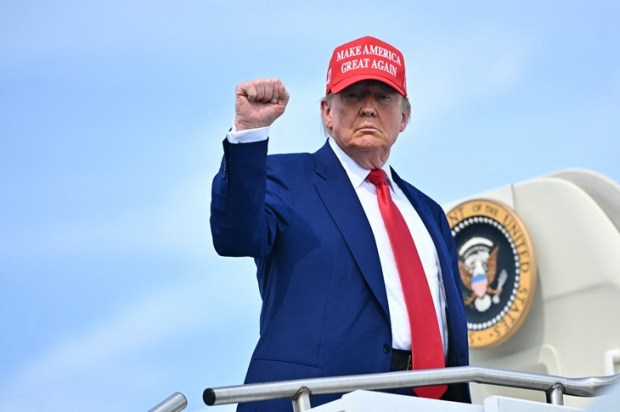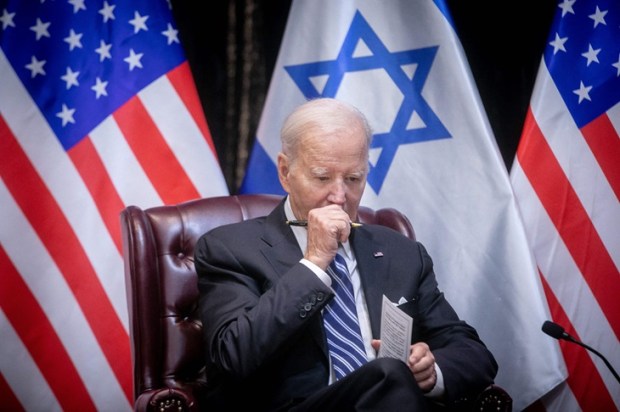What’s behind Shinzo Abe’s Reaganesque straight talk on China?
In his December 1 video address to the Taipei-based Institute For National Policy Research emphasizing that Japan would not stand by if China attacked Taiwan, former Japanese Prime Minister Shinzo Abe set out to address regional security concerns as well as establish key markers in domestic Japanese politics.
Differing historical dynamics aside, Mr. Abe’s December 1 remarks had hints of Ronald Reagan’s 1987 Berlin Wall Speech that took on Soviet leader Mikhail Gorbachev directly in the name of freedom and security.
Mr. Abe mentioned Chinese President Xi Jinping by name three times during his speech, emphasizing that the USA-Japan alliance would consider a Taiwan security crisis as an ‘emergency’.
Abe went on to urge Xi to not ‘step onto a wrong path’, stating that a Chinese offensive against the island would lead to ‘economic suicide’ and said Xi should not fail to understand the gravity of the situation.
Unapologetically, Abe stated that ‘a Taiwan that guarantees freedom and human rights’ is in ‘Japan’s interests’ and ‘… in the interests of the whole world’.
The unique nature of Mr. Abe’s talk was obvious: in a world in which governments, companies, and international organizations (i.e. the IOC) grovel and incessantly apologize to the Chinese Communist Party, Mr. Abe wound up at the pitcher’s mound and let fly a torrent of high and inside brush-back pitches towards Xi and the CCP.
It was as refreshing as it was overdue.
In his speech, the former prime minister had two objectives: firstly, to strongly articulate Japan’s position on China’s threats to Taiwan and secondly, to constrain politically Japan’s new Prime Minister Fumio Kishida and Foreign Minister, Mr. Yoshimasa Hayashi.
The concerns expressed by former Prime Minister Abe were clear: prospects of a Chinese invasion of Taiwan threaten Japan, and the island must be allowed to maintain its open democracy and free society.
Japan’s apprehensions of a Chinese invasion of Taiwan are understandable and justified. A Chinese takeover would place Japan in a vulnerable position given Taiwan’s strategic geography of being a key part of the first island chain. Such a scenario would limit America’s ability to project force in East Asia and secure Japan while placing Chinese forces within 100 kilometers from Japan’s Ryukyu Islands.
In some ways, Mr. Abe’s December 1 blunt comments ran counter to Washington’s long-held ‘strategic ambiguity’ policy towards the Taiwan Strait which some American lawmakers have begun advocating for the Biden administration to abandon.
Regardless, Mr. Abe’s address may help serve as a deterrent to escalation during China’s ongoing pressure campaign against Taiwan.
Mr. Abe’s comments did not occur in a vacuum. They echo statements by Japanese Deputy Prime Minister Taro Aso in July, describing an attack on Taiwan as an ‘existential threat’ that would require Japan and the U.S. to ‘defend Taiwan together’.
This comes as Japan’s 2021 defense white paper referred to Taiwan for the first time as being integral to the peace and security of East Asia. It also follows Japan’s cabinet approving a significant defense spending boost, new security initiatives with European partners, as well as efforts to strengthen the defense capabilities of Southeast Asian states while deepening ties with fellow Quad member countries.
Yet, as Chairman of the Liberal Democratic Party’s largest faction, the conservative 95-member Abe faction, there were also Japanese Parliamentary political objectives in Mr. Abe’s Taiwan speech.
Prime Minister Kishida, who heads the LDP’s Kochikai faction that is known for its efforts of fostering Japan-China relations, has been a dovish centrist throughout his career in public service. This moderate approach has been in contrast to Mr. Abe’s hard-line positions on China over the years.
Foreign Minister Hayashi, formerly the head of a lawmakers group supporting friendly Japan-China ties, has been labelled as a soft-on-China ‘panda hugger’ by conservative elements of the party – Mr. Abe and former Finance Minister Taro Aso, in particular. (Mr. Hayashi is also seen as a rival to Mr. Kishida and is rumored to aspire to become Prime Minister.)
Amid this backdrop, Abe’s December 1 address can be viewed as an effort to influence the Kishida administration and maintain a tough policy towards Beijing.
As Timothy Langley of Tokyo-based Langley Esquire explained during a December 5 Japan Expert Insights lecture, Mr. Abe’s comments about Taiwan may also have been purposed to damage Foreign Minister Hayashi politically. Both men’s families are old political rivals from Yamaguchi Prefecture who are jostling over a redistricting change in which the area will likely see one Lower House seat be eliminated ahead of the next general election due to local population declines.
China’s increasingly aggressive posture towards Taiwan has concerned many policymakers in the Pacific. Mr. Abe’s Reaganesque straight talk on Taiwan’s security provided a needed jolt of resolve to the USA-Japan alliance and clarity on this important geostrategic issue of our time. It also helped address some of the domestic political concerns that Mr. Abe clearly thinks are needed for standing up to China and furthering his faction’s interests.
Ted Gover, Ph.D. (@TedGover), is Clinical Associate Professor at Claremont Graduate University. This piece was originally published by the Australian Institute of International Affairs on December 17, 2021.

























